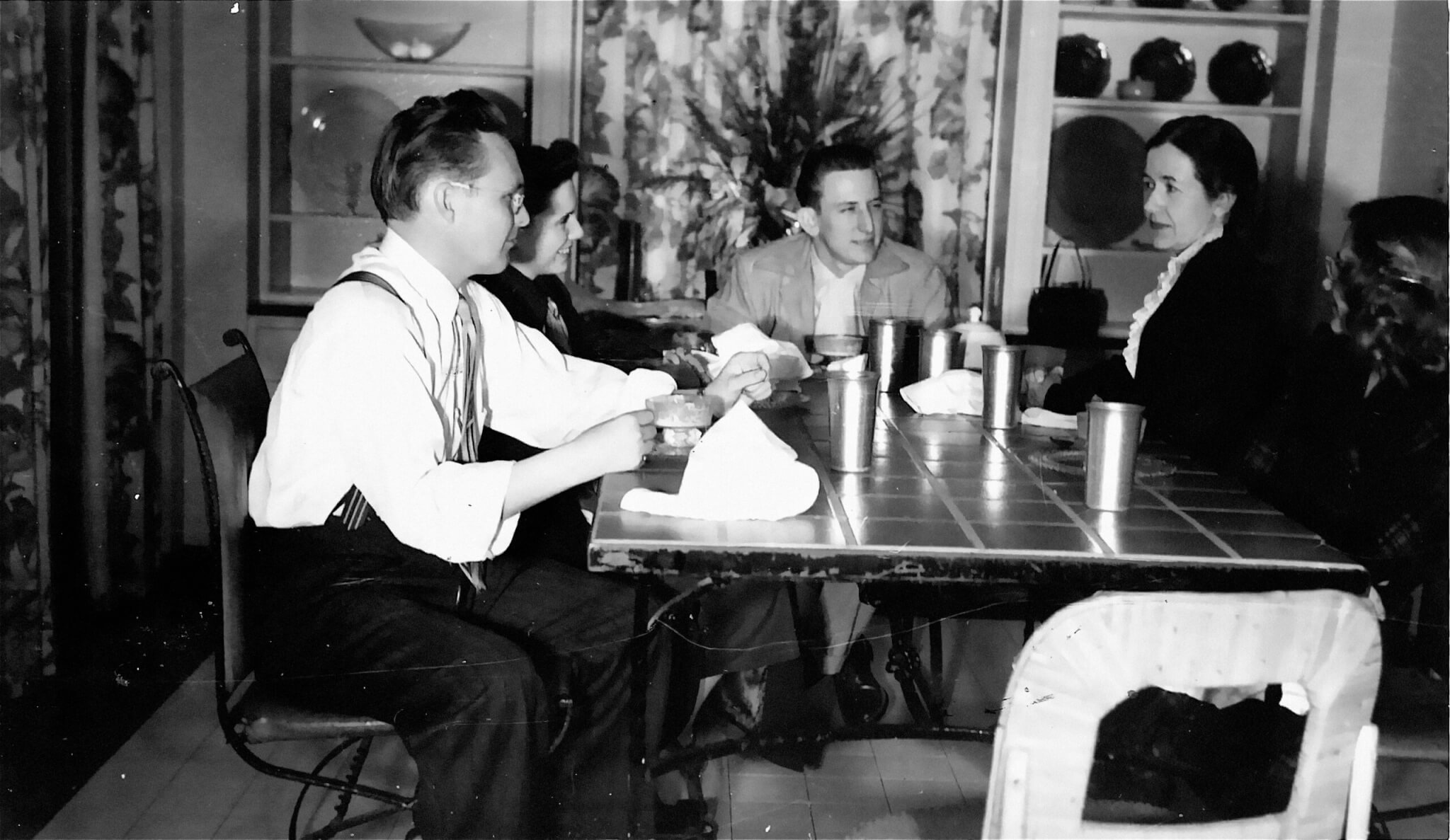
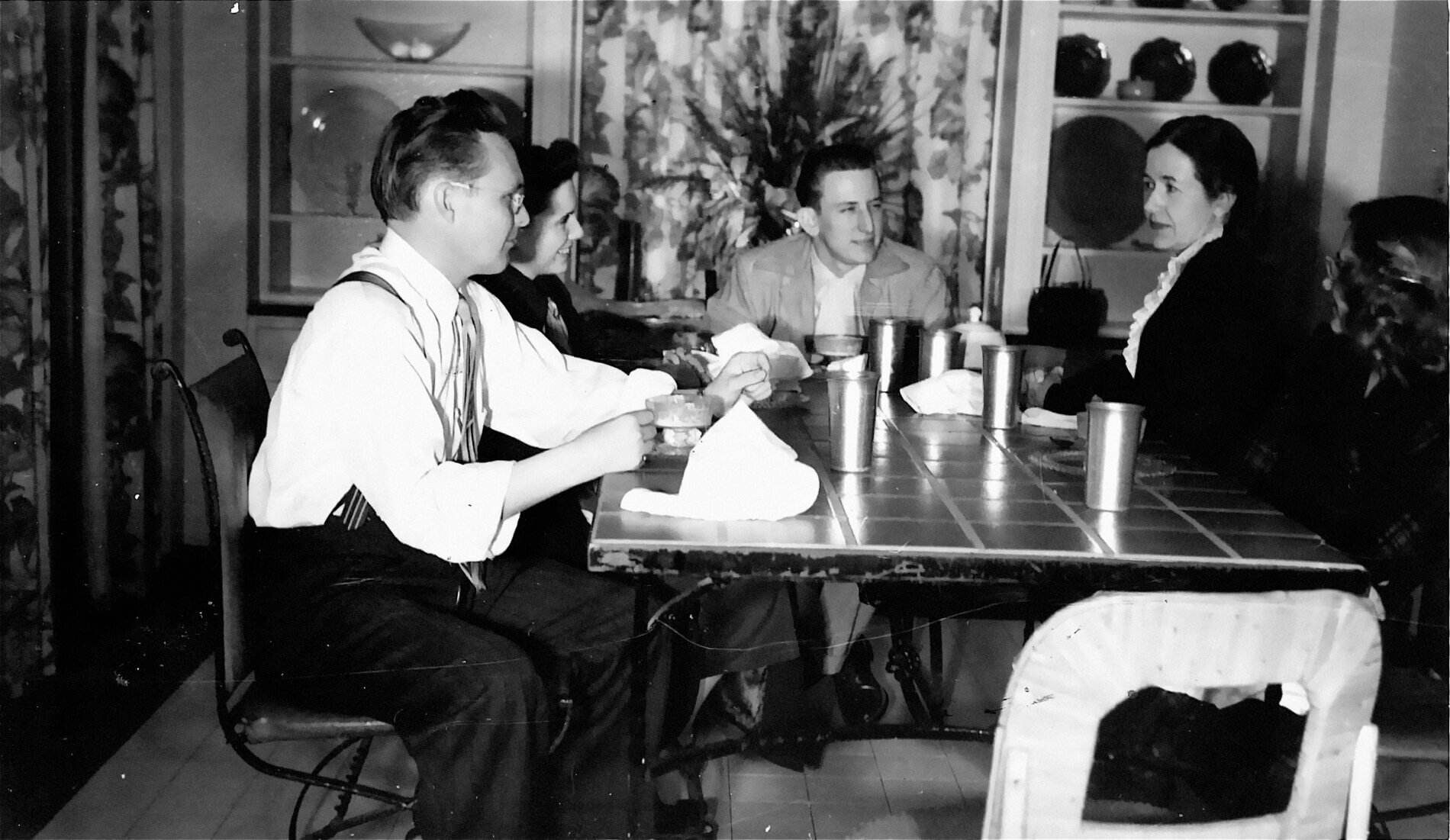
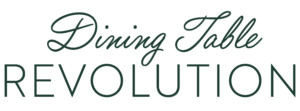
Hope and generosity always start somewhere. For Mrs. Butt, it was often the place where her family gathered to share meals.
 he story goes like this: It was 1950 in Corpus Christi, Texas, and Sunday lunch with the Butt family was a sacred thing. Howard Butt Sr. and Mary Holdsworth Butt gathered the family around the table. Maybe Mrs. Butt was reciting poetry. Maybe Mr. Butt was asking them to share their latest accomplishments.
he story goes like this: It was 1950 in Corpus Christi, Texas, and Sunday lunch with the Butt family was a sacred thing. Howard Butt Sr. and Mary Holdsworth Butt gathered the family around the table. Maybe Mrs. Butt was reciting poetry. Maybe Mr. Butt was asking them to share their latest accomplishments.
Then the phone rang.
In those days, grocery store managers still called Mr. Butt directly during a crisis. He excused himself from the table—because work is also sacred to the Butts—and took the call. His daughter Eleanor Crook remembers hearing his side of the conversation.
“They are sitting at the lunch counter? … Well, it is lunch time. … Then ask them what they want. … Ask them. If they have money to order something, serve them.”
As simple as that, ten years before the Greensboro sit-in at Woolsworth, a southern grocery store began desegregating lunch counters. The process would not be so simple for other stores across the state, but by 1952, the family’s flagship grocery store in Corpus Christi served all customers at their lunch counter.
That wasn’t the only time the dinner table bore witness to big changes.
The table had long been a place of dreams for Howard Butt Sr. and Mary Holdsworth Butt. For 17 years, the headquarters of the H. E. Butt Foundation had been a table, first in Harlingen, then in Corpus Christi. Before she had 1,900 acres along the Frio River, Mrs. Butt had a table.
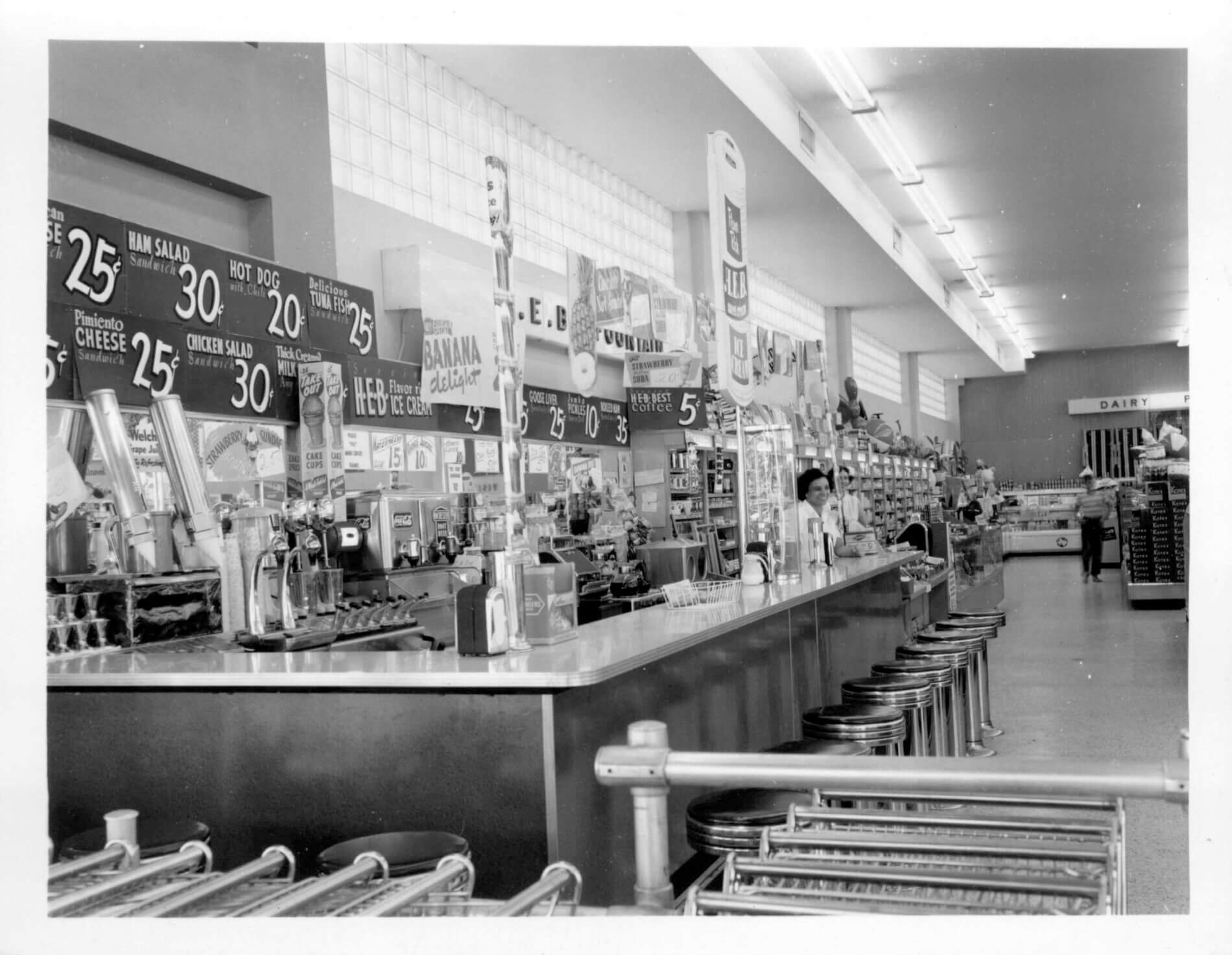
Other Dreams Witnessed at the Table
Years earlier in the 1930s, Mrs. Butt taught herself how to test a child’s hearing with an audiometer at the dining room table, then every morning loaded it up into a car and drove to elementary schools around the Valley. “Every morning, she would head out,” Crook said. Crook remembers her mother storing the audiometer by the front door: “I can still see it, a big black thing.” Mrs. Butt loaded it into the Lincoln and drove to a different school. “She would go to the principal and say, ‘Would you mind if I test your classes?’” Crook recalled.
Mrs. Butt wasn’t an expert in hearing loss—but she recognized the problem school children were experiencing. Solving the children’s problem became her passion. Crook said, “I don’t know how, she just sniffed out anything that was wrong.”
Another wrong from the early days of the Foundation in Corpus Christi? Juvenile justice.
Any child who was detained by the county— for any reason, including homelessness—was thrown in the adult jail. When Mrs. Butt decided she wanted a juvenile shelter for the children, she would find any excuse to gas up her Lincoln at the local station because she knew it was owned and operated by one of the county commissioners. Every fill-up was another chance to ask her local elected official why he sent children to jail.
Finally, the county bought an old decrepit building to house the children. Mrs. Butt was not impressed.
“She wanted them out immediately,” Crook said. “It was a firetrap.” A few years later, the county finally built a proper juvenile detention center. Crook remembers sewing curtains for it when she was in high school.
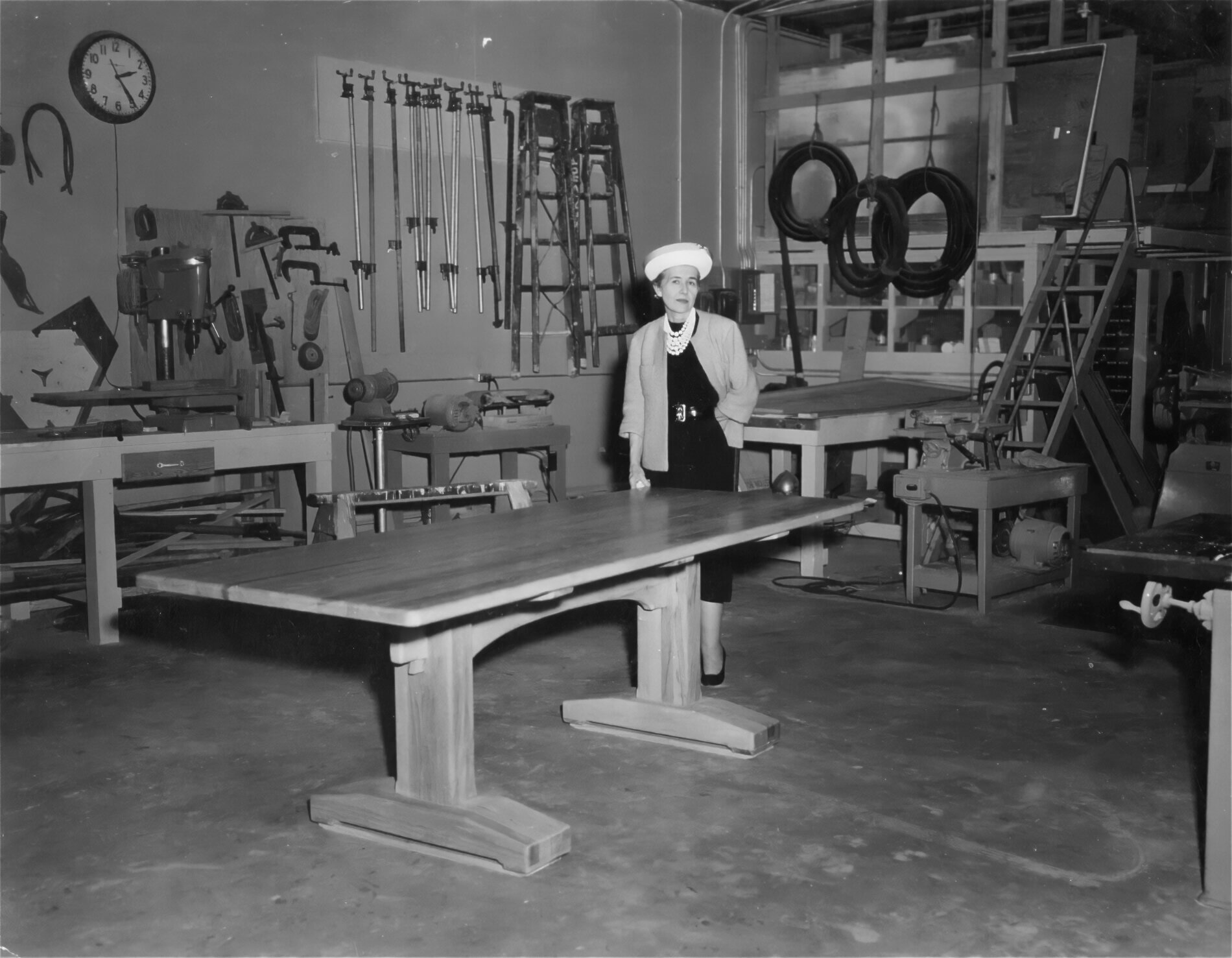
Steady Service and Consistent Philanthropy
It’s easy to hear stories like this and think of Mrs. Butt as a mythic hero, bounding with energy and power and influence. Her actions, though, often started simply, at the table, discussing a problem she saw in the world that needed attention.
She didn’t seem particularly energetic, according to her daughter. “Mother moved so slowly,” said Crook. “She spoke very quietly … But at the end, her accomplishments were staggering.”
The H. E. Butt Foundation founder’s life inspires precisely because it highlights the power of constantly, slowly doing good and relieving suffering wherever we find it. It was a philosophy Mrs. Butt learned from the Methodist mantra of her childhood:
“Do all the good you can,
By all the means you can,
In all the ways you can,
In all the places you can,
At all the times you can,
To all the people you can,
As long as ever you can.”
The power of this is its scalability. It doesn’t call every person to launch world-changing initiatives. Instead, it merely and boldly calls each of us to do what we can.
Mrs. Butt passed the lesson to her children. “You could not just live your life for yourself and your family,” her daughter remembers. She says her mother “was very loving with people, all people, everybody the same. If you had good things in your life, you had to share them, to give to others, as she did.”
Philanthropy is not easy, especially during times of economic hardship. But that didn’t stop the Butts from launching their foundation at the height of the Great Depression. In 1933, unemployment was at 25%. GDP had fallen 33%. The stock market had fallen 80%. During those hard times, the country worked hard to tell itself a story of hope. President Franklin Roosevelt offered regular fireside chats on the radio to reassure struggling families. He said, “The only thing we have to fear is fear itself.” The Chicago World’s Fair promised a century of progress where visitors would “glimpse a happier not-too-distant future.” The United States launched the Civilian Conservation Corps, started the Golden Gate Bridge, and established the Tennessee Valley Authority.
The government also funded a series of new tax vehicles to encourage wealthy families around the nation to create foundations for the public good. One of these was the H. E. Butt Foundation, founded by Mary Holdsworth Butt and Howard Butt Sr. in 1933. For its first couple of decades, it was a humble organization that did its work at the dining room table through simple correspondence, paying attention to the needs they saw around them.
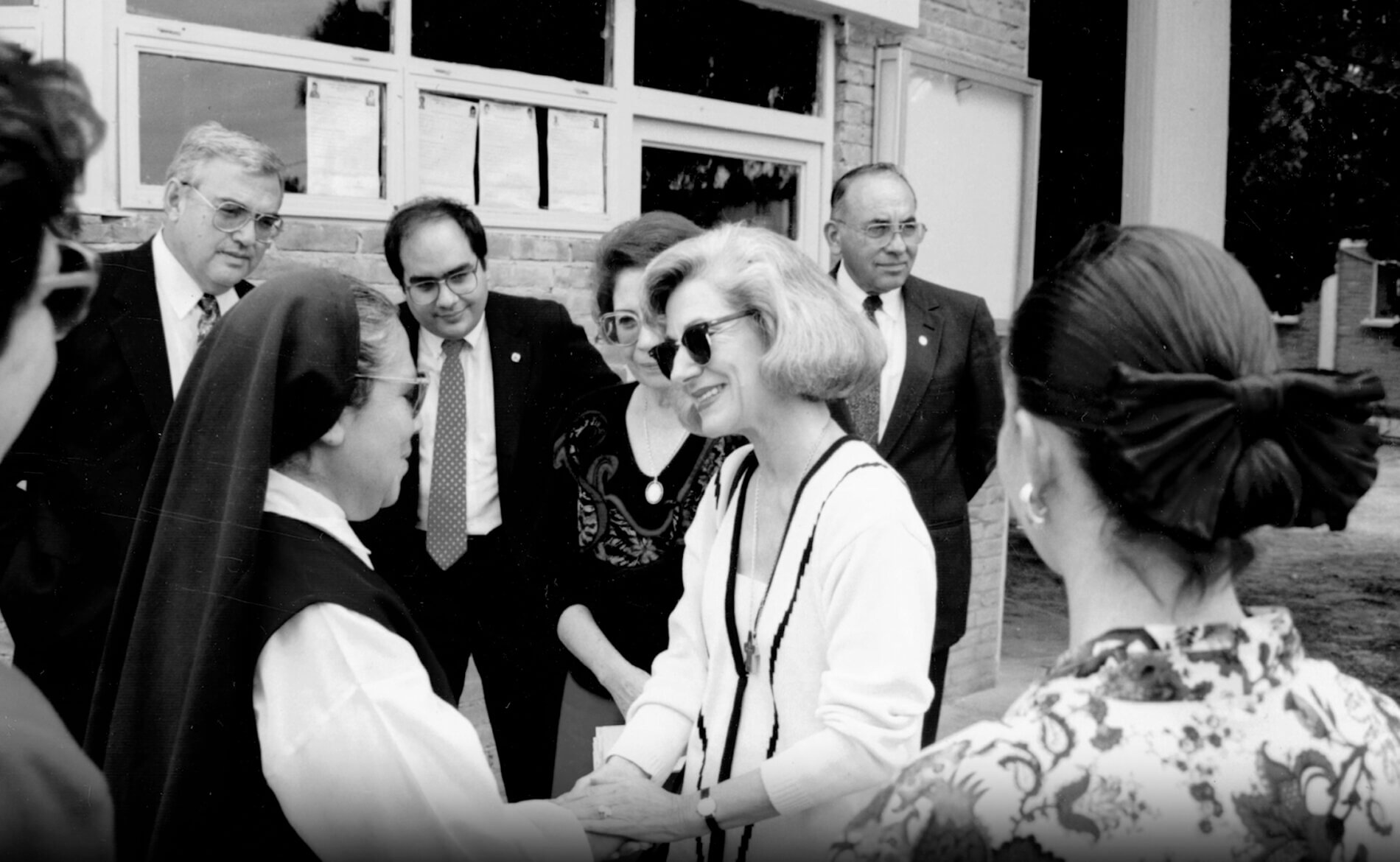
The Current Crisis of Generosity
Today’s economic woes pale in comparison to the Great Depression, yet American generosity is failing. From 2021 to 2022, philanthropy fell 10.5% when adjusted for inflation, according to Giving USA. Since 2014, the number of general population households that donate anything at all to charity has fallen 26% according to the Indiana University Lilly Family School of Philanthropy. At Laity Lodge earlier this year, New York Times columnist David Brooks called this decline in giving a crisis of our country’s heart. Given the state of things, we are more generous than you might think, but less generous than we have been. Less generous than our neighbors need us to be.
But we can rise to the occasion. We can refuse to be afraid. When parts of Europe and Asia fell into despair during the 1930s, some leaders resisted fear. They actively fought despair and replaced it with hope. Then, as now, fear is the only thing we have to fear.
Crook‘s own work for the last four decades has focused on global malnutrition. Her mother left an incredible legacy, one that she is not trying to match actually. “No one could, but I have found my own niche,” she said.
The Eleanor Crook Foundation continues to address the problem of malnutrition that has been Crook’s focus since the 1980s. “Seeing the Ethiopian famine and the suffering it caused,” she said, “became a turning point for me, making hunger my focus.”
“… every worthwhile endeavor starts small. And many worthwhile endeavors remain small and focused. This is how loving our neighbors creates a more loving world.”
Today, the Eleanor Crook Foundation is working to end child deaths from malnutrition. Almost three million children under the age of five will die this year from malnutrition, making it the leading cause of death of children globally. They are working to change that by scaling up the most evidence-based and cost-effective solutions to severe malnutrition around the world. For example, they have provided pregnant women in distressed countries with a more complex prenatal vitamin. It costs only $4 per pregnancy and has been shown to reduce stillbirths in anemic women by 29% when compared to simpler vitamins. Earlier this year, Varsha Thebo, Senior Advisor at the Eleanor Crook Foundation, presented their work to the United Nations, stating boldly that “ending malnutrition in our lifetime is possible.”
It is a bold statement in line with the UN’s sustainable development goals, which include an aim to end global hunger and malnutrition and which have inspired organizations, governments, nonprofits, foundations, and leaders around the world. At the global level, the Eleanor Crook Foundation is working to address malnutrition, joining others in the effort like the World Food Programme and UNICEF. At the local level, the San Antonio Health Equity Network, Bread and Blankets Mutual Aid, and the San Antonio Food Bank are addressing hunger and food insecurity.
Epic challenges like these can feel strangely disempowering to those of us without our own foundations—until we realize that every worthwhile endeavor starts small. And many worthwhile endeavors remain small and focused. This is how loving our neighbors creates a more loving world.
What better place to commit to others than at the dinner table.
Mrs. Butt’s Methodist mantra is popularly attributed to John Wesley because it was inspired by a sermon on “The Use of Money” in which he encouraged Christians, “No more waste! Cut off every expense which fashion, caprice, or flesh and blood demand. No more covetousness! But employ whatever God has entrusted you with, in doing goo, all possible good, in every possible kind and degree, to the household of faith, to all men.”
The poem and other Wesleyan ideas were written on Mrs. Butt’s heart through her work in a youth organization called The Epworth League. Formed in 1889, the organization’s motto was “Look up, lift up,” and it focused on five areas of service: spiritual life, social work, literary work, correspondence, mercy and help, and finance.
For fifty years, Epworthians did admirable work around the country—addressing poverty, building schools, seeking racial desegregation and reconciliation, and writing letters.
The H. E. Butt Foundation archive is filled with Mrs. Butt’s correspondence, and in 1933, its charter language reflected the values of the League, promising to work for “the support of any benevolent, charitable, educational or missionary undertaking … to the end that suffering humanity may be relieved.”